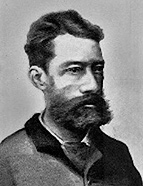

Of some epistemological importance is the fact that Martins Sarmento based his work on literary data gathered from classical sources and did not question their reliability. At a time when positivism had gained considerable weight in classical studies and some had even taken the discrediting of these texts to extremes, he reveals, in this respect, a closeness to the humanist tradition. His reading and interpretation of classical texts is very peculiar, but almost always far from the critical and hypercritical currents that marked his time.
To the arguments gathered from the texts, Sarmento naturally adds those of an archaeological nature, taking the particularities of the material culture of the castros (revealed in aspects such as the structure of dwellings, ceramic production, sculpture, and Galician warriors) as a clear manifestation of the originality of their culture. While this component of his theory might seem more solid, it conflicted with the prevailing belief at the time that the language spoken in the Hispanic West was Celtic. He therefore had to face opposition from some notable figures in the field of “ glótica ” (the name then used to refer to what we now call linguistics), in particular Leite de Vasconcelos and Adolfo Coelho, who reminded him of the clearly Celtic nature of a significant set of names unequivocally associated with the Lusitanian world, as he conceived it. Leite de Vasconcelos’s differences with his former teacher (with whom relations had irretrievably cooled) were a matter of conflicting ideas within a framework of mutual respect. On the contrary, with Adolfo Coelho, professor of Glottology in the Higher Course of Letters, the discussion took on a much more conflictual aspect, as was typical of the intellectual milieu of the time (A. Coelho, “ Questões ethnogenicas . Lusitanos, ligures e celtas ” [ Ethnogenic issues. Lusitanians, Ligurians and Celts]. Revista Archeologica . Lisbon, 3, pp. 129-77; 4, pp. 153-161). This professor, from the height of his “chair”, assesses Martins Sarmento’s skills as follows: “he has no clear idea of the methods of criticism applicable to classical texts, of the most elementary principles of the science of language, of the foundations of ethnic sciences; he is an isolated worker in a small provincial town, surrounded by well-meaning people who are unable to discuss his opinions, which they accept unconditionally.” This inevitably leads to open controversy, a field in which Martins Sarmento also feels at home. The direct response is given in a very long text (“Lusitanos, Lígures e Celtas ”), published in several issues of “his” Revista de Guimarães between 1890 and 1894.
This work is financed by national funds through FCT - Foundation for Science and Technology, I.P, in the scope of the projects UIDB/04311/2020 and UIDP/04311/2020.
